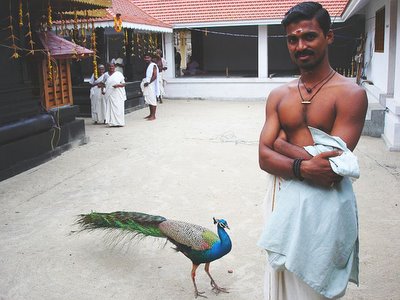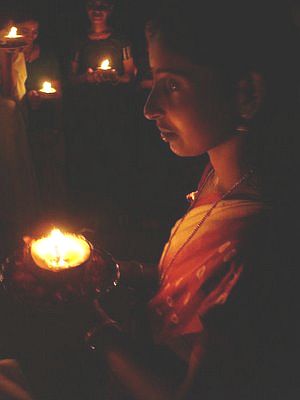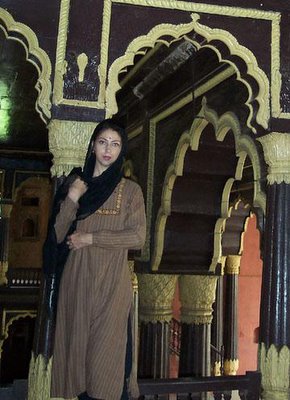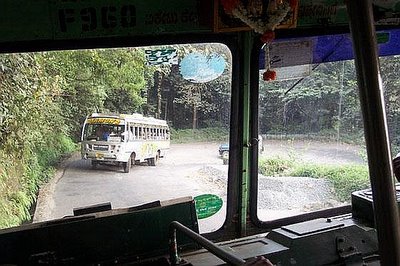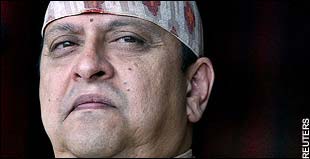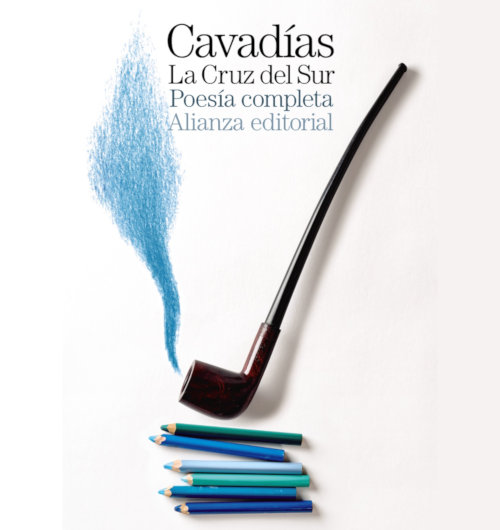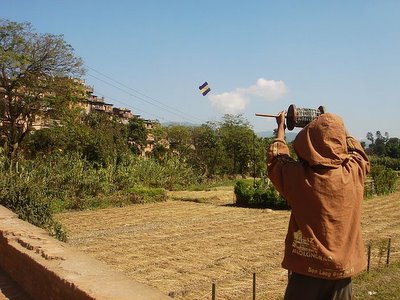 5-Day Forecast for Kathmandu Valley: Fair throughout the Kingdom. Wed: High 68- Low 44Fri: High 66 - Low 42Sun: High 64 - Low 41
5-Day Forecast for Kathmandu Valley: Fair throughout the Kingdom. Wed: High 68- Low 44Fri: High 66 - Low 42Sun: High 64 - Low 41My enforced "Visa Sabbatical" departure date (December 13 - one is only allowed to stay in Nepal a total of five months of any
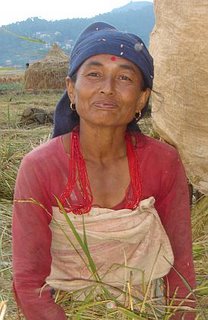
calendar year, and I arrived in late July) looms like, well, some looming thing on my calendar and in my brain, clouding any clarity and ability to concentrate, a sort of preview of my return to India ("This is your brain. This is your brain in India.") Nepal has not ceased to amaze me with its comparatively greater space, personal and geographical. Foreigners are far more integrated into the Nepali culture and economy than they are in India, and people actually leave you alone here.
If you like, you can socialize with the extremely warm, friendly yet dignified Nepalis; or live in as much privacy as you choose. This is rarely possible in India. There, it's all about the people - population is the overwhelming fact of Indian life. You have to deal with people whether you feel like it or not - and after the first ninety times you answer personal questions to total strangers, it becomes "not" more often than not.
The Nepali perception of climate seems quite different from that of India. It's the only place I've ever been in my life that has neither provisions for heat, nor cold. The hotel rooms, residences and restaurants usually have no fans, nor any form of heating. This, despite the fact that it's just as hot in April, May, June and so on here as it is in most of India (very), and gets very cold indeed after December.
Everywhere I lived in India (admittedly, I was mostly in the South, and never in a hill station) there were fans - vigorous electric ceiling fans that seemed on the verge of spinning off their axis
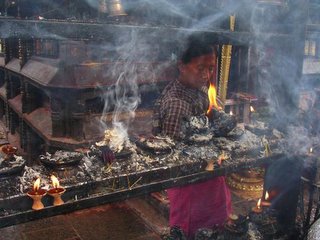
(ax-es?) when put on "high" setting, which they usually were about half the year. I had never seen a fan rotate so furiously - at times I was afraid to sleep beneath them for fear the frenzied blades would actually come flying off. In contrast, fans, even in sultry summertime, are a real rarity here in Nepal. By August, I had discovered every restaurant that had even a single fan and made a point of eating there, my friend and I dashing to claim the lone table situated under the one pathetic fan, often a "swinging" tabletop model mounted on the wall at an angle. Sometimes I had to request the fan's activation. The employees and other customers didn't seem to mind stewing in the fetid torpor (so why did they
have the thing if not to use it? Were they waiting for it to get hotter than a very humid 86 degrees?). In fact, they often seemed surprised that there
was a fan. Oh, that strange machine, is
that what that's for? okay....
Equally weird, men and women both walked around Kathmandu all summer visibly sweating in long sleeved shirts. The Nepali style of sari-blouse is a distinctive one with full-length sleeves, mandarin collar and cross-ties. This is not to mention the Tibetan women in their bulky
chubas. Local architecture, as in India, does take the heat into account; most buildings are somewhat open - that is, they may have an enclosed lobby but often the stairs lead to open balconies (the only equivalent in the US is an old-fashioned Holiday Inn, with doors along the outdoor corridor) and a courtyard.
It was never cold enough in my Indian homes to warrant any kind of
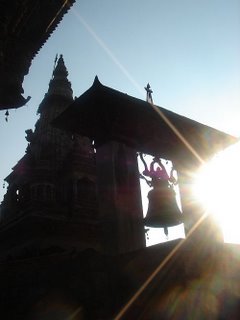
heating device, just hot water heaters for winter mornings in the posher places. Here in Nepal, where it gets to freezing with frost on the windows (if not snow) in the Valley - let alone higher elevations- there are no heating systems in any building, and hot water is even more of a luxury than in India. Okay, I'm just a spoiled westerner, but explain this - everyone's walking round now in jackets, shawls and even ski hats and balaclavas, and they still keep all the doors and windows open all day and night (!). Extra blankets are the only heating supplement. When I hear tell of the electrical bills here for an ordinary house, even without heat, it explains perhaps the fact that there is no heating to speak of. (But whatever happened to the woodburning stoves with chimneys that are common in the countryside?)
In the courtyards of most buildings, the watchman builds a small fire on the concrete, and idle employees huddle around, warming their hands. Can you imagine trying to do this in the States? they'd be shut down with some kind of fire violation immediately.
Though the days are increasingly short and growing gloomy here, the
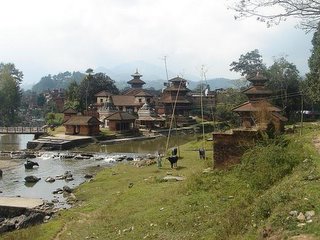
prospect of getting on a bus to Senauli - arguably one of the grimiest, dingiest places in all India - and then the train to Varanasi (say no more) after 5 months of shanthi Nepal is like having to leave an air-conditioned room for the pre-monsoon street in mid-May. Plunged into squalor, and often, besieged from every side. This is the real reason meditation developed in India - not because the people are so "spiritual" or advanced or anthing. Meditation was a last resort - it was the only way to get any kind of personal space, internally, because there is never any space externally.
Almost as inexplicable as no heat when it freezes, is the fact that suddenly, everyone wants to know what I am doing, where I am going and what my plans are,
right now. For some reason, the plans of a semi-employed photojournalist seem of the utmost importance to an alarming number of people. The only other option is nobody giving a toss about me (nice British expression picked up from companions on the travel circuit) which is equally discomfiting.
Funny how when you are physically ill, you can't think of or do anything else - all your energy goes toward recuperating. If only, you think, I didn't have this cold/sore throat/giardia/infection/headache/toothache, I could accomplish something. Once you recover, however, you then have to deal with all the stuff in your head...which does
not go away with plenty of rest and drinking lots of fluids. You
have to do something with it.
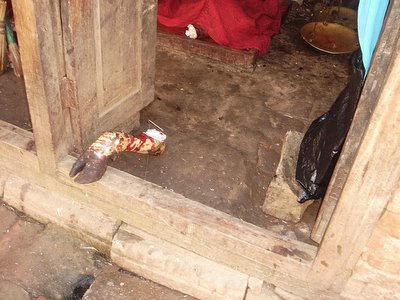 Foot Fetish: This is the fresh lower leg of a sacrificed buffalo, covered in blood and placed intentionally in the doorway of a shop in Bhaktapur. Though it's something we might do as a nasty prank, in Nepal it is auspicious and considered to both ward off evil spirits and bring good fortune to the shop.
Foot Fetish: This is the fresh lower leg of a sacrificed buffalo, covered in blood and placed intentionally in the doorway of a shop in Bhaktapur. Though it's something we might do as a nasty prank, in Nepal it is auspicious and considered to both ward off evil spirits and bring good fortune to the shop.


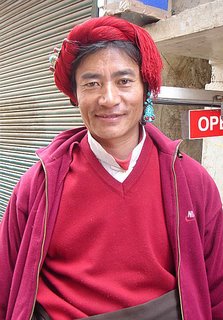

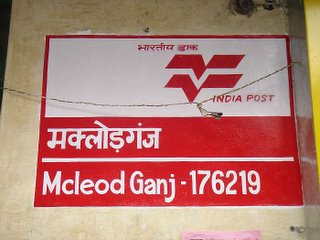
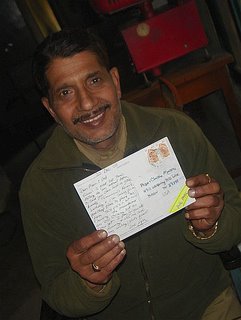

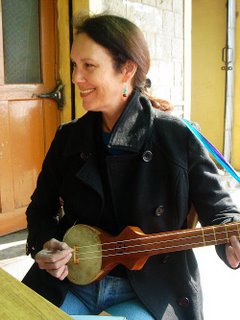
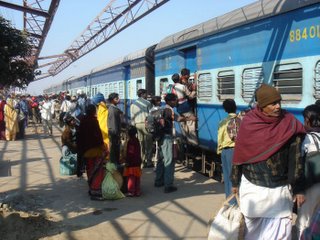
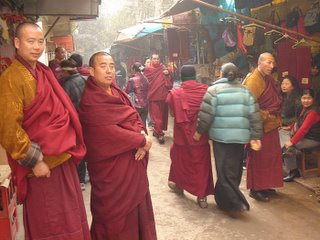
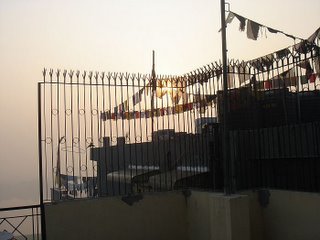

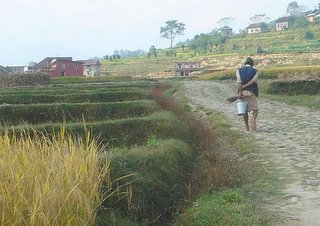
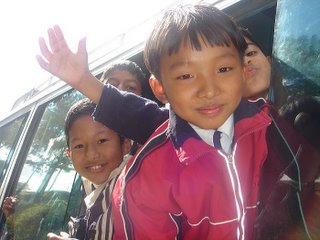

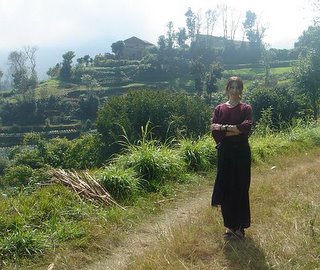
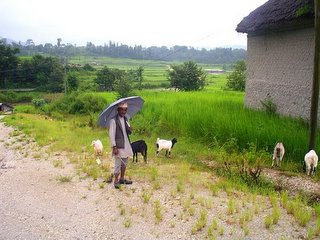






 Foot Fetish: This is the fresh lower leg of a sacrificed buffalo, covered in blood and placed intentionally in the doorway of a shop in Bhaktapur. Though it's something we might do as a nasty prank, in Nepal it is auspicious and considered to both ward off evil spirits and bring good fortune to the shop.
Foot Fetish: This is the fresh lower leg of a sacrificed buffalo, covered in blood and placed intentionally in the doorway of a shop in Bhaktapur. Though it's something we might do as a nasty prank, in Nepal it is auspicious and considered to both ward off evil spirits and bring good fortune to the shop.

